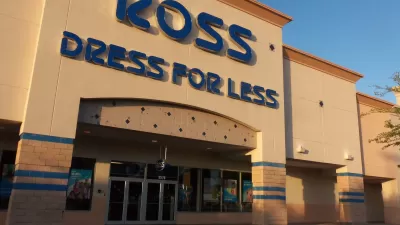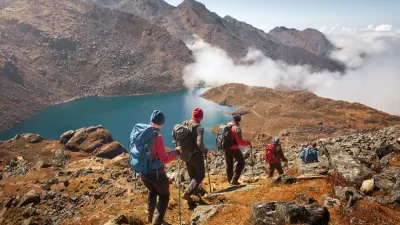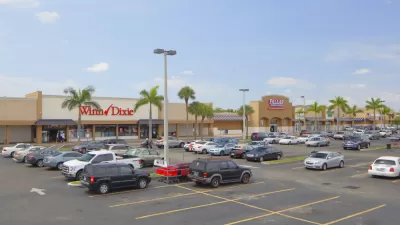The decision in South Dakota v. Wayfair certainly didn't hurt traditional retailers, but they're still going to have to help themselves in the face of competition from online retail.

Erika Morphy reports on the consequences of the U.S. Supreme Court's decision in the case South Dakota v. Wayfair, which "ruled that US states may impose sales taxes on Internet businesses, even if they don’t have physical locations in those states."
Some physical retailers are hoping the decision mitigates the effects of the "retail apocalypse" crippling malls and ground floor retail around the country. Morphy speaks with industry experts to get their sense of the benefit of the Supreme Court decision to physical retailers, and finds more reason for caution. Amazon, which sells more online in the United States than the next nine competitors combined, already charges a sales tax in 45 states, the District of Columbia, and Puerto Rico.
Instead of counting on this Supreme Court decision to bail out the industry, Morphy suggests savvy developers are looking to new kinds of "experiential" retail offerings to compete with online sales. A Planetizen article from March 2018 provides additional examples of innovative approaches to retail. The example of the CREACTIVE mall in Toronto, which provides a circus for visitors to participate in while shopping, is cited throughout the article as an example.
FULL STORY: Did The Supreme Court Just Save Retail?

Planetizen Federal Action Tracker
A weekly monitor of how Trump’s orders and actions are impacting planners and planning in America.

Maui's Vacation Rental Debate Turns Ugly
Verbal attacks, misinformation campaigns and fistfights plague a high-stakes debate to convert thousands of vacation rentals into long-term housing.

San Francisco Suspends Traffic Calming Amidst Record Deaths
Citing “a challenging fiscal landscape,” the city will cease the program on the heels of 42 traffic deaths, including 24 pedestrians.

Amtrak Rolls Out New Orleans to Alabama “Mardi Gras” Train
The new service will operate morning and evening departures between Mobile and New Orleans.

The Subversive Car-Free Guide to Trump's Great American Road Trip
Car-free ways to access Chicagoland’s best tourist attractions.

San Antonio and Austin are Fusing Into one Massive Megaregion
The region spanning the two central Texas cities is growing fast, posing challenges for local infrastructure and water supplies.
Urban Design for Planners 1: Software Tools
This six-course series explores essential urban design concepts using open source software and equips planners with the tools they need to participate fully in the urban design process.
Planning for Universal Design
Learn the tools for implementing Universal Design in planning regulations.
Heyer Gruel & Associates PA
JM Goldson LLC
Custer County Colorado
City of Camden Redevelopment Agency
City of Astoria
Transportation Research & Education Center (TREC) at Portland State University
Jefferson Parish Government
Camden Redevelopment Agency
City of Claremont





























